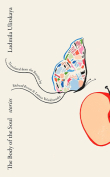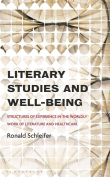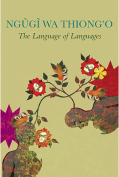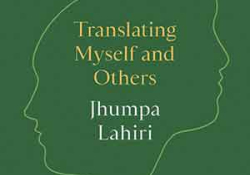Roman Stories by Jhumpa Lahiri
 New York. Knopf. 2023. 224 pages.
New York. Knopf. 2023. 224 pages.
Jhumpa Lahiri began her career as a creative writer with the publication of her first collection of short stories, The Interpreter of Maladies (1999), which went on to win a Pulitzer (WLT, Spring 2000, 365). After several other successful works of short fiction and novels, Lahiri moved to Italy with her family in 2012 and since then has been writing almost exclusively in Italian. She has published collections of essays and a novel in Italian, subsequently translated into English. Roman Stories was also originally written by Lahiri in Italian, Three of the stories in this collection were translated by Todd Portnowitz and the rest by Lahiri herself.
Unlike Whereabouts (2021), Lahiri’s first novel in Italian translated into English, Roman Stories offers us a wider canvas of experiences even though the setting is still Rome. The stories are arranged in three parts, and in all three parts we encounter moments of contact between older and newer inhabitants of the city. Even when these two groups meet as close friends, as in “The Reentry,” thoughtless comments of children disturb the delicate balance of the friendship, and the professor who has established an intimacy with the city feels suddenly an outsider. In “P’s Parties,” the sudden illness of a child at a party brings a man, who is a native of Rome, and an expatriate woman into a sudden awareness of understanding and an intimacy that upsets the existing balance of relationships. Even though no affair ensues and even the attempt of writing an imaginary one inspired by this encounter falters, the narrator mourns the passing of P the hostess, who was able to bring groups of natives and expats together effortlessly at her annual gatherings.
In some stories these tensions between the old and the new become far more harrowing and destructive. In “Well-Lit House,” Lahiri offers us a glimpse of blatant xenophobia and Islamophobia against a refugee family who moves into subsidized housing provided by the government. The insults and harassment by the “ravens”—women who campaign for the removal of the refugee family—is so devastating that the veiled wife leaves for her native country and the husband becomes a homeless vagabond, preferring to sleep under the bridge rather than return to a flat. The theme of xenophobia against new residents of the city is explored again in “Notes,” where a lonely widow who finds work in an elementary school that her sons had studied in finds anonymous hate notes in her coat and purse. In “The Delivery,” a woman who cares for an elderly woman finds herself the target of an attack by a moped driver, who shoots her with a pellet gun.
In so many of the stories, we find Lahiri tracing the changing demography of Rome: it is no longer a city that only speaks Italian, and many languages and identities have begun to inhabit a previously monolingual space. While some of these new residents of the city are those who have come to pursue Italian language and culture like the protagonist of the last story, “Dante Alighieri,” a greater number are those who have crossed the Mediterranean on precarious boats trying to escape a civil war or tyranny to reach Lampedusa, the first refuge on European soil. The narrator’s daughter in “Dante Alighieri” helps people trying to cross over to Italy on flimsy boats. While the daughter obviously supports the rights of refugees to seek safety from persecution, the ravens of “The Well-Lit House” do everything they can to drive a refugee family out of the neighborhood.
“The Steps,” which is a collection of vignettes presenting several characters who traverse the same steps, captures the great variety of lives and stories pulsating through the city. There is an old widow who cannot cope with the rising crimes of the city, a migrant nanny who has left her own child behind to care for those of another, and two brothers who sit on the steps and reminisce about their childhood in the same city before their parents separated and started very different lives. If there is any common thread, it is the inevitability of the passage of time and change that affects all these characters.
Roman Stories is a love letter to the city that Lahiri has made her home in middle age. However, it is by no means a romanticization of Rome or the lives of expatriates in Rome. While she does present vignettes of lives like her own—characters from the new world, drawn to the Italian language, history, and culture who make Italy their home—she also presents the grittiness of the city, its dependence on the cheap labor of migrants for its fine dining and bars, and its subtle and overt intolerance of difference. Even though Lahiri has moved away from depicting lives of Indian immigrants in the US, she remains fascinated by the encounters between natives and newcomers—the creativity and eroticism of that encounter as well as its potential for disruption and violence.
Lopamudra Basu
University of Wisconsin–Stout



































